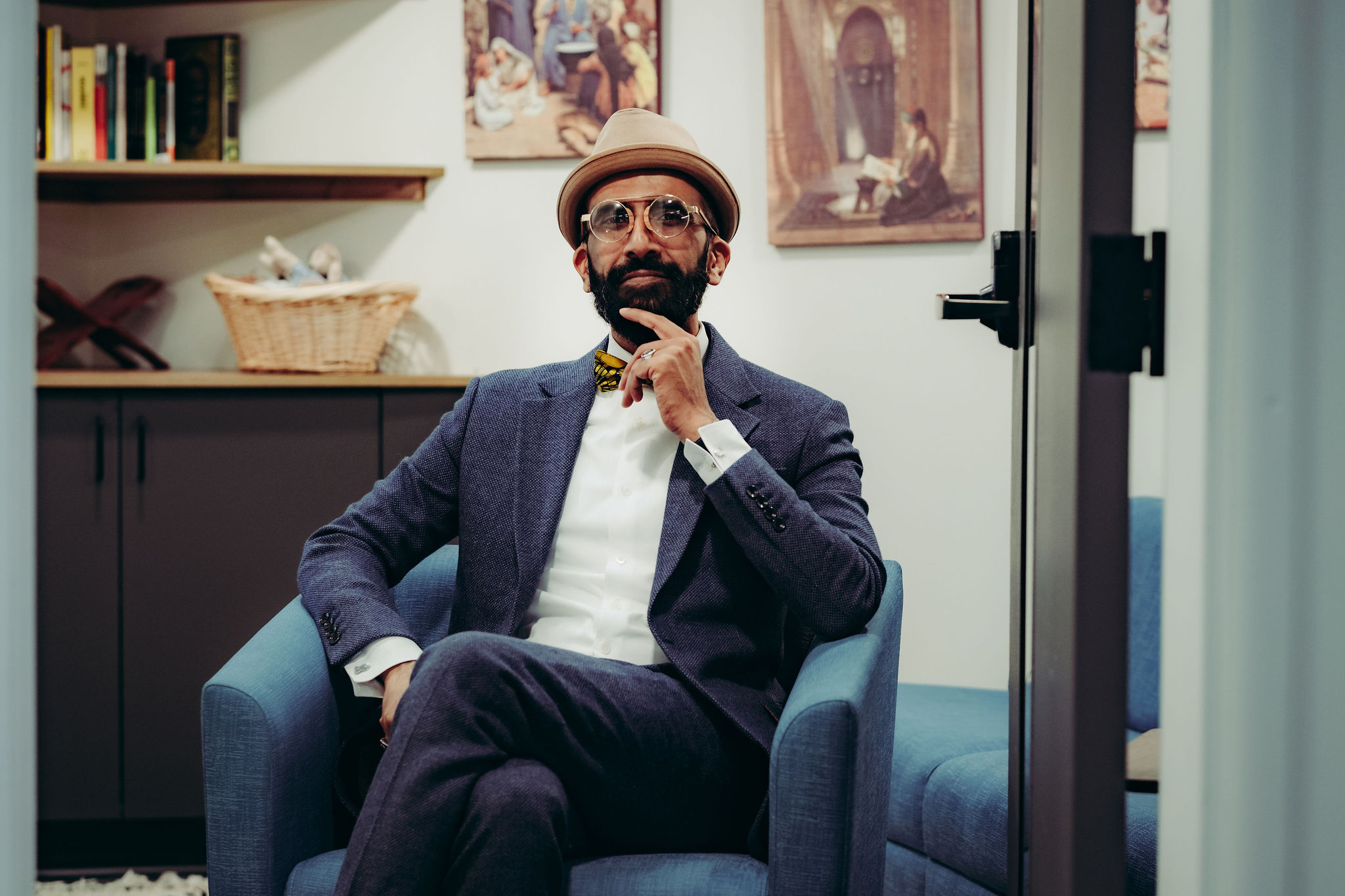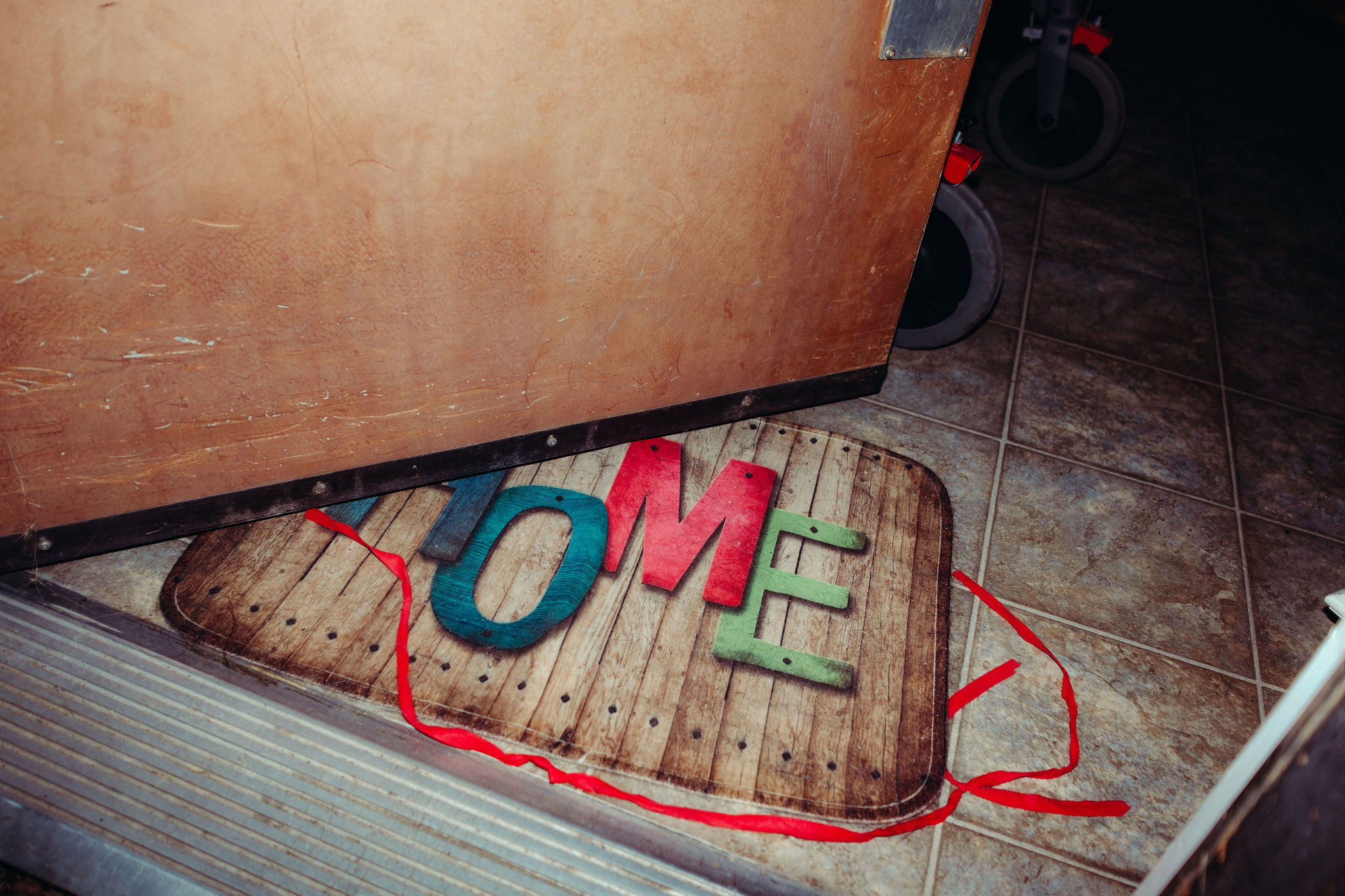This is one of 12 interviews conducted with various Edmontonians about their experience with the housing system. It has been edited for clarity and length. Read more about why and how Taproot embarked on this series.
Omar Yaqub serves the team at IslamicFamily.ca, a holistic social change organization based in Edmonton. IslamicFamily (also known as IFSSA) serves thousands of Albertans every month, providing care and community connection, as well as capacity-building research and supports for the social sector. Yaqub was born in Edmonton, lived in Mundare for the first six years of his life, studied at the University of Alberta, and worked globally before returning to make Edmonton home. At IslamicFamily, he was instrumental in forming the Halal Housing Lab, a collaborative research project on the complexities of housing for extended families, values-aligned financing, and community-based rent supplements.
Can you tell us how you got into the housing ecosystem?
(While a university student) I started volunteering with a small community organization (IslamicFamily), which at the time had barely two staff and was operating out of an industrial warehouse in the south side. Through more than 10 years on the board, I got to see the organization grow dramatically. In 2018, I took this thing that I'm really passionate about from the side of my desk to the front of my desk and haven't looked back since.
Housing underpins every single thing we do. If we're talking about someone who's trying to flee domestic violence, housing is integral. Oftentimes people stay in an abusive situation because of housing. Housing is a crucial part of addressing mental health, and it's a crucial part of supporting newcomers.
Two (of many) stories motivate me around housing: One of a mom who was taking care of her parents and her kids and living in an abusive relationship. The choice she was given by our system was "Leave your parents, leave your kids, or stay in abuse." The reason that person had to stay in that situation is because the systems we have aren't designed for that (a multigenerational family).
The other story I think about is of a father who came here from Iraq. He was taking care of his siblings' children, because of war, his siblings had died, and so he had this very large family, of 12 or 15 kids, and there's nowhere to put this family. Some kids are in one unit and other kids are in another unit. After all these years, after all this dislocation and displacement, we can't even let them share a roof and have a place that is made for them to share a meal together.
I think these stories are important. They're not stories unique to our community, they're stories shared with Indigenous people and with many others. These are the stories that compel me to do the work I do, to see how we can work on building solutions.
Why do you think we have these problems?
(Among many reasons), CMHC (Canada Housing and Mortgage Corporation) will pay you the same amount to build a two-bedroom unit as they will a four-bedroom unit, and so we have this incentive for developers to build one- and two-bedroom units. The City's Affordable Housing Needs Assessment shows that we need more one-bedroom units than 3+-bedroom units. However, the number of people waiting for three- and four-bedroom units is greater than the number waiting for two-bedroom units. Having larger units would impact more people and give housing to more families. We really have to be thinking about why we are ignoring this. Why is the policy this way?
What's different about the way IslamicFamily approaches it?
Housing means different things in different environments and different cultural contexts. The Halal Housing Lab looked at not just affordability, which is really important, but it also looked at designing around different cultural needs. We spent time engaging the communities we served, asking what they want. When we probed deeper, what people said is that what makes a home is hospitality. And hospitality has consequences in designing a home, right? It changes the blueprint. Smaller bedrooms, bigger living rooms, a closed kitchen, because you're hosting people. It means designing around larger families.
(Another difference is) designing around equitable finance. As a Muslim community, we can't engage in predatory lending or conventional debt because we believe it's inequitable, so we have to create alternative finance mechanisms. As a community, one of the things we come with, which is very unique, is actually a community-based rent supplement (funded through zakat — an obligatory wealth transfer between those with means and those without), which means new dollars for operating affordable housing. So, as a community-based organization, we operate the largest mutual aid institution in Edmonton, and the Muslim community operates the largest mutual aid institution in Canada.

Omar Yaqub smiles in a gathering space at IslamicFamily's office. (Jordon Hon)
The term community seems to come into the conversation a lot.
Community can bring different ways of addressing the problem. Different perspectives, different worldviews bring innovation. Community can bring different resources, like when we think about community coming up with its own rent supplements. When it comes to building housing, community can come in and be part of social procurement, which brings the cost of housing down. So those are all important components of why we need community perspectives at the table when thinking about housing.
When we hear certain voices saying that we need to invest more in the same way of doing things, that's not a bad thing. There are benefits to supporting organizations already doing housing. At the same time, we can help those organizations broaden their perspectives. We need established providers to work alongside organizations with different perspectives, different resources, different access to help create new models around housing.
This interview was conducted on Sept. 3, 2024.


